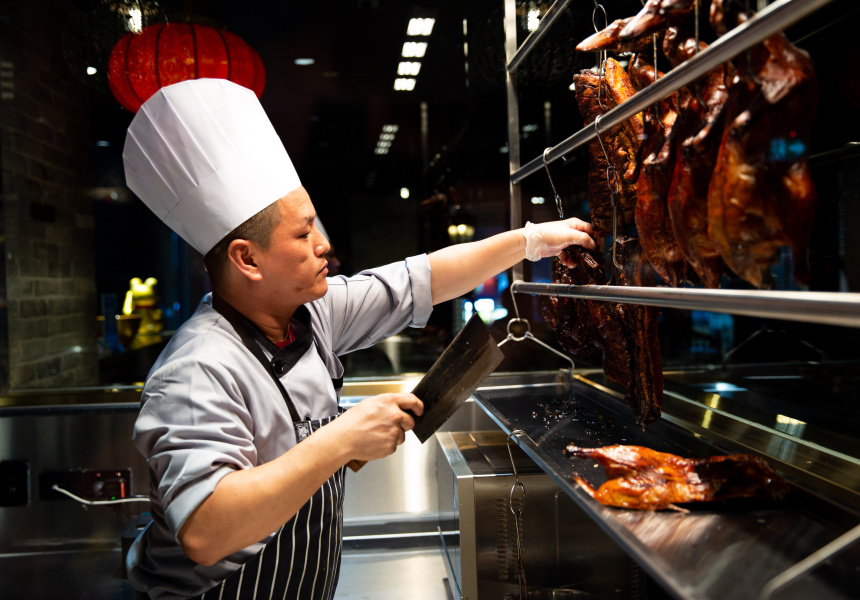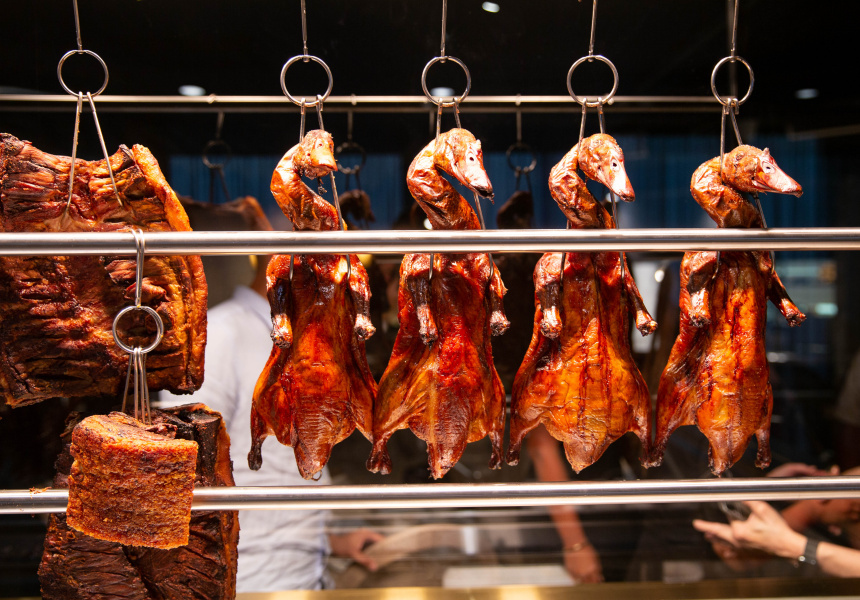Some of Brisbane’s best Chinese restaurants are reeling after a sharp drop off in business following the outbreak of the COVID-19 coronavirus in China’s Hubei province. In some cases, turnover is down 50 per cent on normal February levels. Many operators in the traditional Asian restaurant hubs of Sunnybank and Chinatown in Fortitude Valley have been affected.
“There’s been a big drop-off since a couple of weeks ago, since the explosion of coronavirus issues,” says Robin Yu, owner of south-side institution Kingsfood Sunnybank. “I think people have overreacted.”
Kingsfood is a lynchpin in the Market Square shopping mall, which is packed full of Chinese, Taiwanese, Thai, Japanese, Malaysian and Vietnamese eateries. Yu says the centre has seen a precipitous decline in trade across the board.
Never miss a Brisbane moment. Make sure you're subscribed to our newsletter today.
SUBSCRIBE NOW“It’s all the Asian restaurants in this area,” he says. “It’s very obvious. During the busy times you couldn’t find a car park here. Now you can get a park and the shops are empty. Some restaurants or shops have had to reduce trading hours.”
Yu says he was caught by surprise by the downturn, but points the finger at fake news on social media and in particular a fraudulent Queensland Department of Health media statement released over the Australia Day long weekend that claimed there was a “level 3 health warning for coronavirus” and advised “against nonessential travel to Wuhan, China, Sunnybank, Sunnybank Hill, Runcorn, Eight Mile Plains.”
Lisa Smith is the marketing and community engagement manager for Retail First, which represents both Sunnybank Plaza and Sunny Park shopping centres, just across McCullough Street from Market Square. She says the fake Queensland Health alert was to blame for an initial drop in the numbers of diners visiting the suburb, but that a subsequent lack of foot traffic in the shopping centres has been caused by Chinese Australians returning from holidaying in China and choosing to “self-isolate”.
“A lot of people got back and they saw the calls to stop kids who had travelled from going to school … They’ve travelled or have family and friends who have travelled, and they’re hearing statistics out of China before the local media picks them up – so [for many people] it’s just a case of hunkering down and staying indoors for a couple of weeks.
“A lot of our locals come out several times a week to dine and several times a week to buy groceries at the Asian supermarkets,” she says. “Most of our tenants have been in contact with us with concerns [about the drop in trade]. Many are independent traders, so it’s very representative of our local community and we’re really conscious that there are a lot of families being impacted by this.”
Not helping is a lack of foreign students after the federal government’s ban on travellers returning from or transiting through mainland China. At the University of Queensland alone “more than 7000 international students” [a whopping 45 per cent of the university’s international enrolment] missed Monday’s start of semester, a UQ spokesperson told Broadsheet.
“That’s until at least the end of this week,” Yu says. “That would make them a month late arriving home, in some cases. And it’s workers too – some of my friends work in Australia but don’t have permanent residency. They’ve gone home for holidays and now they’re locked down in China.”
Chinatown in Fortitude Valley has also been heavily hit by coronavirus fears. Iconic yum cha restaurant King of Kings closed after what restaurateur Nelson Chung, co-owner of neighbouring Super Bowl Chinese Restaurant, says was a sharp decline in tourist trade over the past month. But King of Kings later announced it was reopening in May after renovations. (Broadsheet approached King of Kings’ owners and the restaurant’s former landlord for more information on the closure but had not heard back by the time of publication.)
“[Super Bowl] has definitely been affected,” Chung says. “Especially over Chinese New Year. When I started seeing a lot of cancellations I asked people why and they said it was because of coronavirus. Clearly, there was a stigma of coronavirus hanging around Chinese restaurants.
“Our main clientele is people who come into the Valley at night – mainly Brisbane people from all across the city.
“Think about where people are seeing their news – Facebook and Instagram – and the only thing that comes up is coronavirus. [But] I don’t see why we should be affected. If you’re in China, sure, stay home, but we’re in a completely separate country. There are just [22] cases in Australia so far … We’re blessed, we should be able to just go out.”
Chung says the drop-off in trade at Super Bowl was at one stage as much as 60 per cent, and that coronavirus fears didn’t help by arriving during the traditionally quiet months of January and February.
“It’s already a shit time of the year,” he says. “Now it’s just more shit.”
Still, earlier reports in the Courier Mail and national initiatives such as the #IWillEatWithYou hashtag have helped Super Bowl and other restaurants in Chinatown recapture some of their nighttime trade.
“We’ve been here for 27 years,” Chung says. “We’re an institution. When people see their local Chinese restaurant not doing so well they’re going to come and support us, and we’re really touched by that. But while we’re OK, some businesses down in Sunnybank are really struggling.”
Both Lisa Smith and Robin Yu say trade in Sunnybank has lifted slightly over the past week, but there’s still a long way to go.
“We’ve had a little bit of a lift,” Smith says. “We’ve got more than 60 food and beverage tenants and that doesn’t include Market Square across the road. I think it’s going to be a slow return.”
“Three weeks ago it was maybe 60 or 70 per cent down. Now it’s more like 50 per cent,” Yu adds. “It increased last week but it’s still not good enough. In Sunnybank, we have local families and international students, but also the families of students. Many parents come out to Australia and stay with them and look after them. These people are not back yet. That’s the situation.”
Still, other parts of town have so far largely avoided the worst of the downturn. Yu’s second newly opened Kingsfood restaurant in Brisbane Square in the CBD has barely been affected: “People are still coming out like nothing happened,” he says.
David Flynn, co-owner of popular neo-Chinese restaurant Little Valley in Fortitude Valley, says there has been a slight decline in trade compared to last year but that it could be down to any number of factors, including the current degree of competition in Brisbane’s dining scene.
“It’s affecting some operators, but a lot of them more than us,” Flynn says. “But I do notice the feedback from customers and people outside the industry mentioning it to me. Maybe some people interpret as, ‘I’m going to steer clear of anything to do with Chinese food for a little while.’ There’s that assumption that certain ingredients are sourced from China.
Flynn says the downturn did catch him by surprise: “Sure, there’s maybe a bit of hazard in travel around the region at the moment,” he says. “But that shouldn’t mean every Chinese restaurant should be crossed off people’s lists.”
“For us, it’s just about supporting the local community and encouraging people to come out and dine,” Smith adds. “These are independent traders and they really do need our support right now. So we’d encourage people to come out and enjoy these restaurants.”
This story was updated on February 28 to reflect news that King of Kings is reopening in May.


